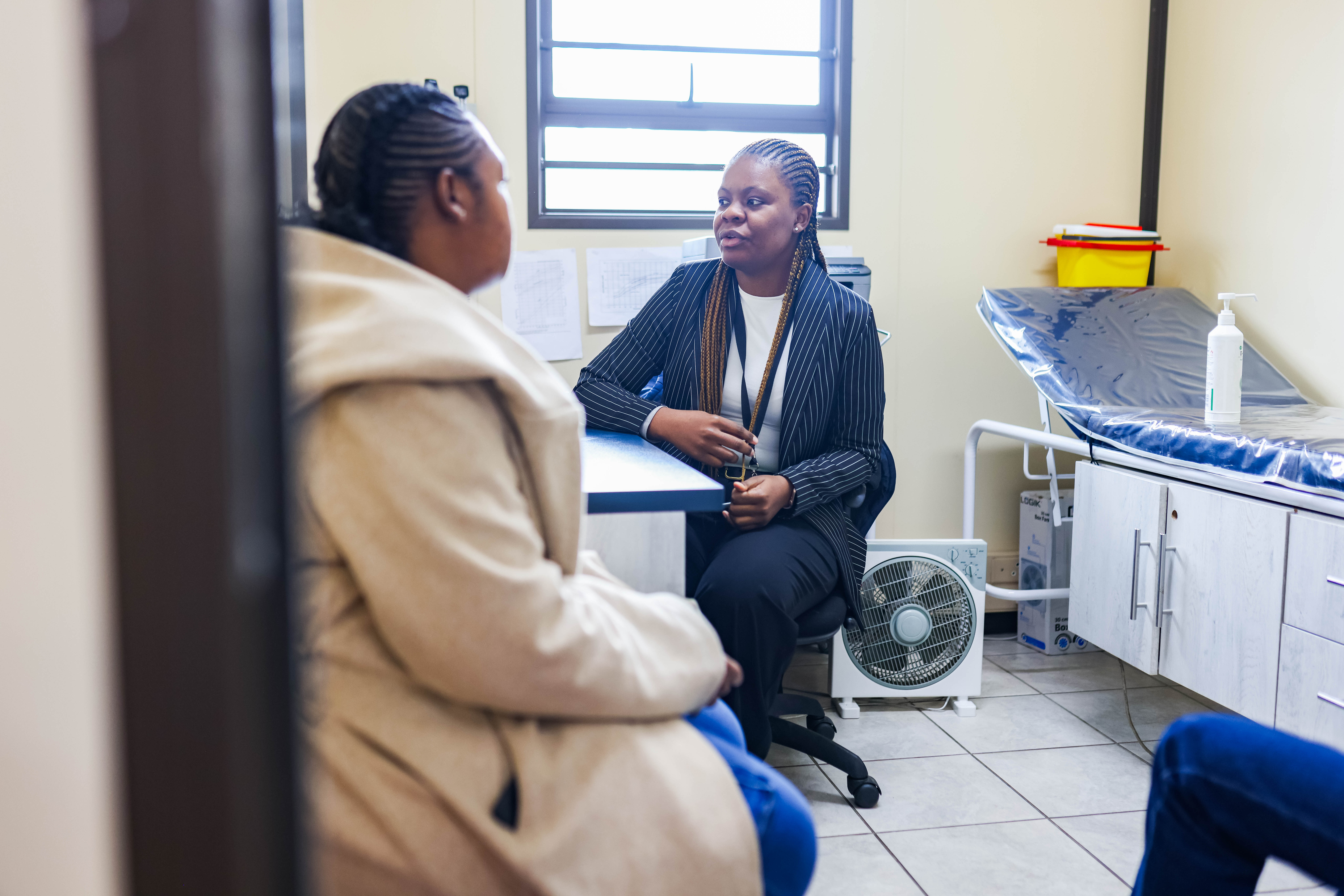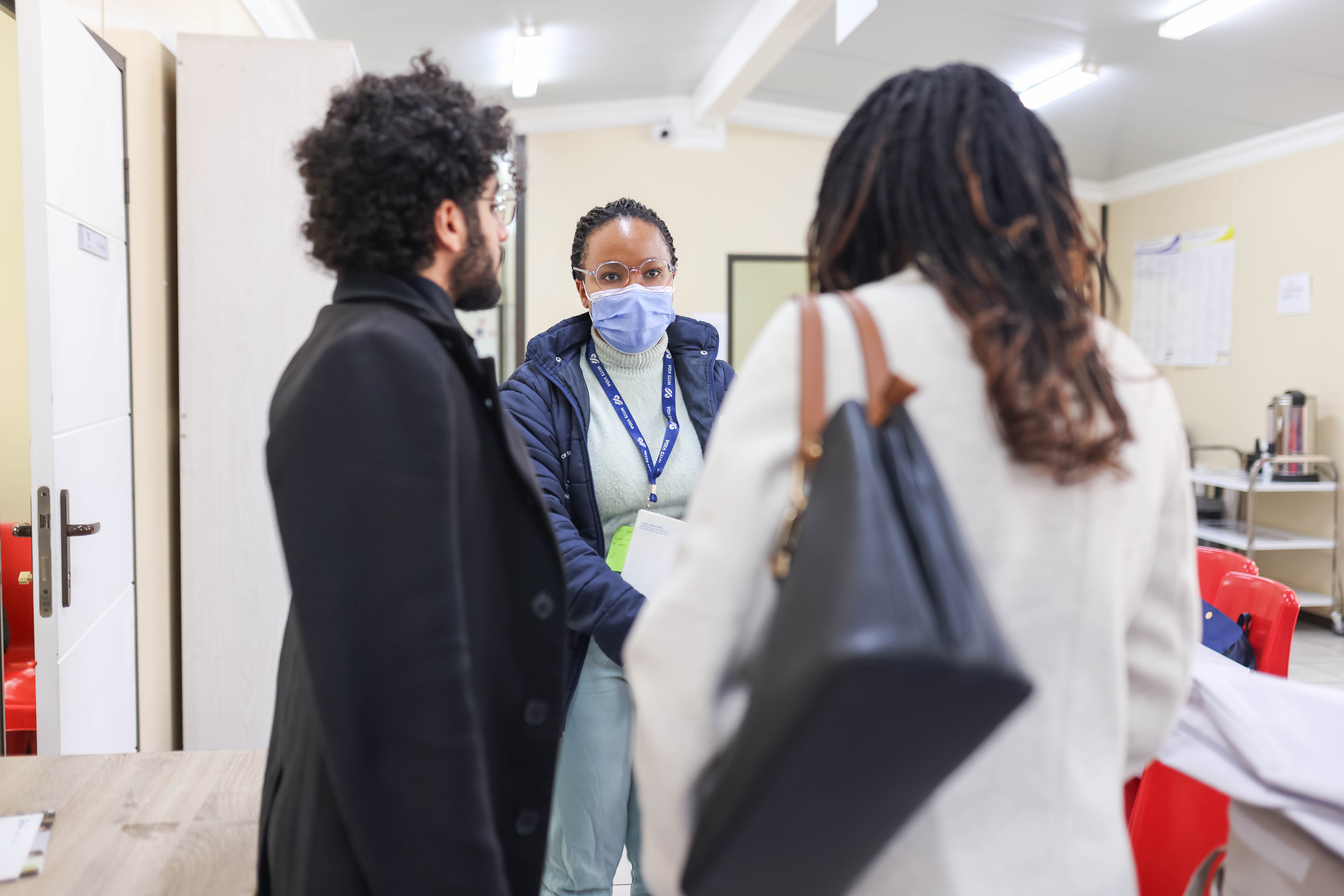The BIPs went to South Africa: Exploring Maternal & Neonatal Immunisation in Johannesburg
Hosted by the University of the Witwatersrand, it included visits to local medical centers. European students were particularly impressed by the high standards of care delivered by healthcare professionals working with limited technological resources.
The programme brought together experts from European and African institutions, offering a comprehensive overview of the scientific and public health principles underlying immunisation strategies for pregnant women and infants.
The director of the European Plotkin Institute for Vaccinology at the Université libre de Bruxelles explains why the BIP coordinators have chosen Johannesburg for the physical section of the programme:
For us it was essential to have the in-person component happening in South Africa. The massive global burden of disease is happening in the south, so it’s very important that students from the north and from the south meet and talk about how to address these challenges”, says Prof. Arnaud Marchant.
Host and guide of the programme was Associate Professor Clare Cutland, the Scientific Coordinator at the Wits African Leadership in Vaccinology Expertise (Wits-ALIVE) and coordinator of postgraduate vaccinology training at the University of the Witwatersrand.
Involvement and motivation stand out in front of challenges
One of the visits was at the The Vaccines and Infectious Diseases Analytics (VIDA) Research Unit of the University of the Witwatersrand. The students toured the hospital, including the maternity and paediatrics wards, and also spent time in Wits-VIDA’s clinical trial facilities. They observed participant screening, enrolment and sample collection, reviewed vaccine storage, handling, dispensing and administration procedures.
Ugandan James Tumusiime, a Wits alumnus currently working with the Uganda Virus Research Institute, was impressed:
“I think one of the things that actually stands out is they aren’t doing it simply by themselves, as South Africans, but they are collaborating with various organisations and universities in Europe and in Africa as well, as a region”.
In the Wits VIDA laboratory, sample processing and storage procedures were demonstrated. Strategies for recruiting participants for vaccine trials and engaging communities were discussed, as were clinical trial data collection, management and data analysis.

On the agenda were also discussions on vaccine safety considerations for maternal and neonatal vaccine trials, including the eligibility and screening process, regulatory and ethical considerations, quality assurance and monitoring.
In my country, everything is digitalised. Here I can see the involvement and the motivation from all the workers and even the community that allow it – even with a lot of challenges – to be efficient and cost-effective”, says Oussama Soulimani, master student in biomedical science in Bruxelles.
Inner-city primary healthcare
Another objective (destination) was the Wits RHI - a renowned research institute specialised in HIV/ TB, sexual and reproductive health, vaccine and infectious diseases. The visit here included an overview of maternal and neonatal immunisation activities at the Hillbrow precinct - including discussion and demonstration of the Ubomi Buhle pregnancy registry enrolment and ultrasound examination for gestational age assessment.
Routine antenatal care activities were observed during a tour of the Shandukani Antenatal Clinic and Midwife Obstetric Unit, a primary healthcare clinic.
Dr. Dorothea Stathaki, from Greece, currently doing a master’s in paediatric infectious diseases, didn’t know what to expect when she arrived in South Africa. Once there, she was impressed by the ongoing research:
They’re doing some impressive work on vaccination programmes and clinical trials, and I’m impressed by the dedication, and how many programmes are going on.”
Even local South African Wits student, Nokhanya Sangweni, was struck by the differences between Wits VIDA in Soweto and Wits RHI in Hillbrow: “I like that we alternated between the two, so we were able to compare the two research centres and see how different they are and also how they do actually work quite closely with one another,” she says.
For Ethiopian student, Dr Bersabeh Mekasha Kassaye, the most interesting and inspiring part was seeing clinical trials executed in real time, despite challenges with patient caseloads and record-keeping: ”Having visited the clinical trial units and getting to see several projects that they have implemented at this site for the past 25 years has been really interesting – to understand that it is possible to implement such studies under several constraints and challenges”.

Professor Vana Papaevangelou, Associate Professor of Paediatrics at the National and Kapodistrian University of Athens, Greece, accompanied four of her master’s students to South Africa. Her words are impressive:
We are very excited to be here, getting a lot of experience and input from a completely different setting, a place where maternal vaccination is a success, whereas in Greece, we have a long way to go. It’s a country with a very low percentage of maternal vaccination”, says the professor with concern.
The recordings of the online lectures, available online
Before the physical section of the BIP, the students had to follow the virtual part. The courses, offered by the IMPRINT network. Over six modules, the students were offered insights into the science, implementation, and policy of vaccination for pregnant women and infants. The topics covered immunobiology, clinical trial design, ethics, and vaccine confidence.
Already available on the network's website, the recordings of the online lectures are an opportunity for researchers, students, and practitioners to strengthen their knowledge in maternal and infant vaccination.
The second edition of the Maternal and neonatal vaccination BIP will start in March 2026, with the physical part taking place between 27-31 July 2026, also in Johannesburg.
Latest Highlights:
Living and working in the White Desert - vlogs from Antarctica by a ULB student
Earth observation and geoinformatics empower humanitarian response
SUR researchers identify key elements for food safety and quality
Christian Möllmann: A "civizen" linking European and African universities
